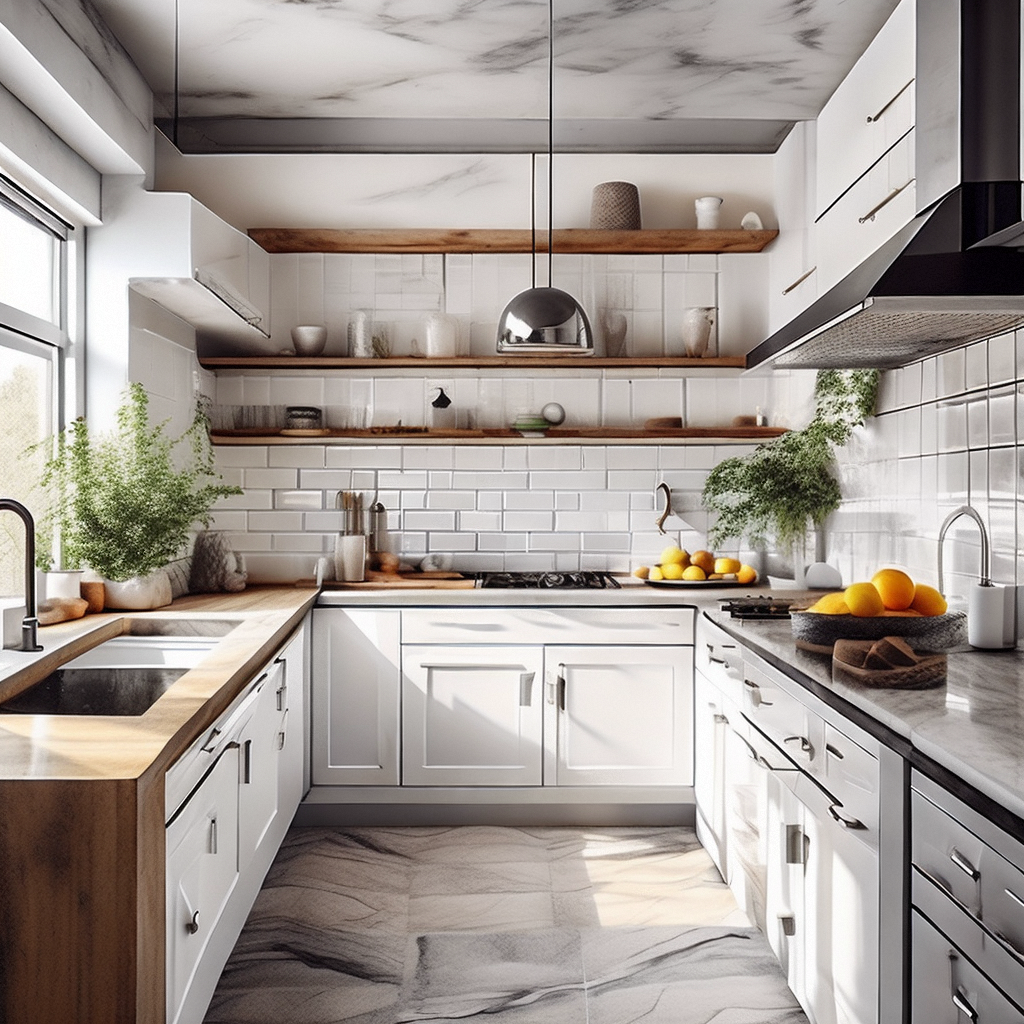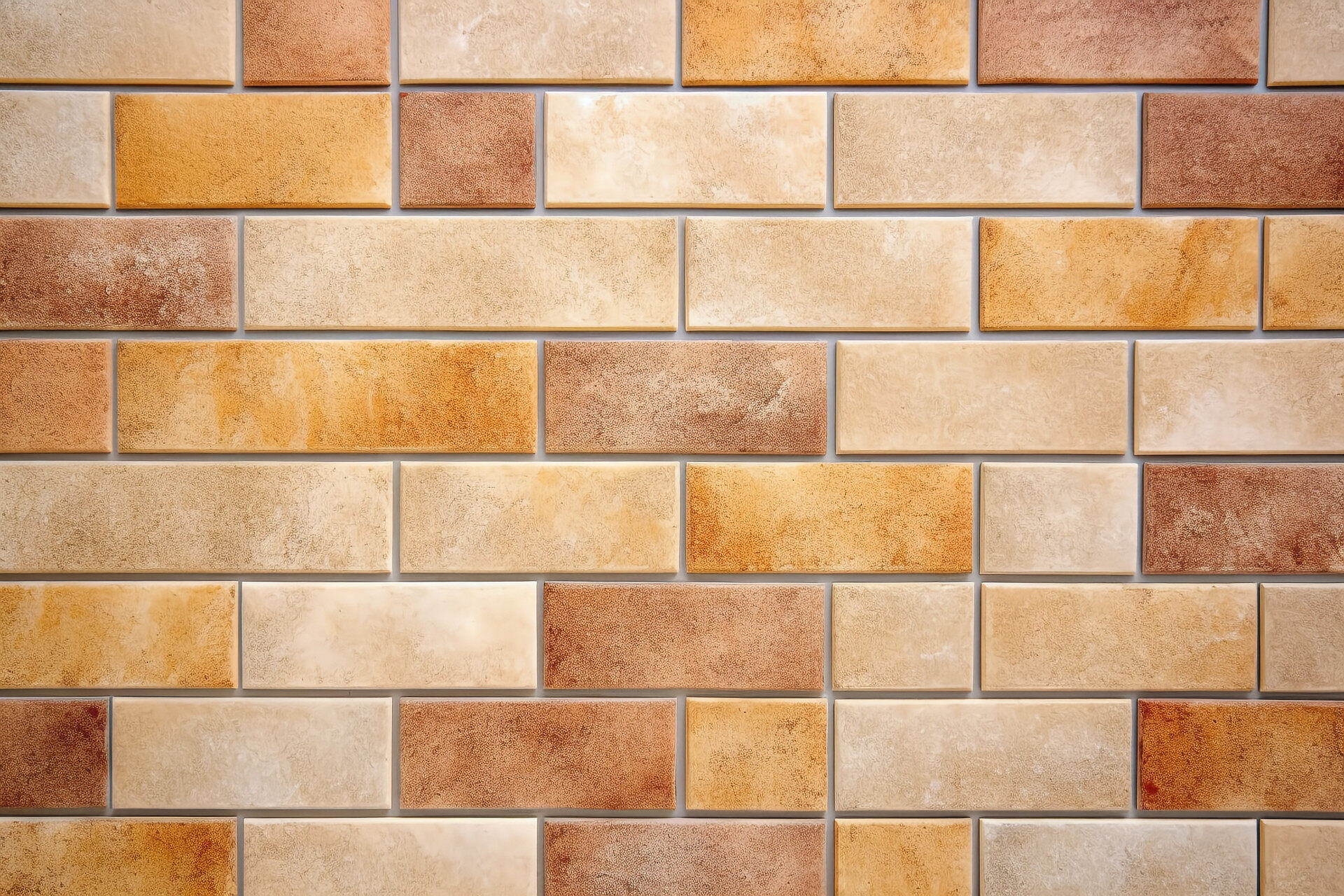The Great Tile Debate: Full Body Porcelain vs Glazed Tiles
When choosing the right tile for your home or commercial space, the decision often boils down to two popular options: full body porcelain tiles and glazed tiles. Both have their unique attributes and can transform a space in different ways. Understanding their distinct qualities and how they align with your needs can help you make the best choice for your flooring project. In this blog, we will delve into the differences between full body porcelain and glazed tiles, exploring their benefits, potential drawbacks, and ideal applications.
Full Body Porcelain Tile: An Overview
Full body porcelain tiles are made from a mixture of clay, minerals, and other materials that are fired at high temperatures. What sets them apart is that the color and pattern are consistent throughout the entire thickness of the tile. This is achieved through a manufacturing process that ensures the tile’s core is as visually appealing as its surface.
Key Features and Benefits of Full Body Porcelain Tiles:
Durability: One of the primary advantages of full body porcelain tiles is their exceptional durability. Since the color and pattern extend through the entire tile, they are highly resistant to wear and tear. This makes them an ideal choice for high-traffic areas where the floor will be subjected to heavy use.
Scratch and Stain Resistance: Full body porcelain tiles are less likely to show scratches because the color and pattern remain consistent throughout. Additionally, their non-porous surface helps resist stains and spills, making them easier to maintain in busy environments.
Consistency: The uniformity of the pattern and color throughout the tile gives a seamless and high-quality look. This is particularly useful in large areas where you want to avoid noticeable variations in appearance.
Low Maintenance: These tiles are easy to clean and do not require special cleaning products. Regular sweeping and mopping are typically sufficient to keep them looking their best.
Potential Drawbacks:
Cost: Full body porcelain tiles are often more expensive than other types of tiles due to their manufacturing process and high durability. This can be a consideration for budget-conscious projects.
Installation Complexity: Because of their density and weight, full body porcelain tiles can be more challenging to install. Professional installation is often recommended to ensure a perfect fit and finish.
Limited Design Choices: While they offer durability and consistency, the range of designs and patterns may be more limited compared to other tile options.
Glazed Tiles: A Versatile Alternative
Glazed tiles have a different composition and manufacturing process. They are made from ceramic or porcelain and coated with a layer of glass-like glaze. This glaze provides both aesthetic appeal and functionality by adding color and texture to the tile’s surface.
Key Features and Benefits of Glazed Tiles:
Design Variety: Glazed tiles are available in a wide range of colors, patterns, and finishes. Whether you’re looking for a glossy, matte, or textured surface, there’s likely a glazed tile that fits your vision. This versatility allows for creative design possibilities and personalization.
Stain and Moisture Resistance: The glaze creates a protective layer that helps repel stains and moisture. This makes glazed tiles particularly suitable for areas prone to spills, such as kitchens and bathrooms.
Ease of Cleaning: The non-porous surface of glazed tiles makes them easy to clean. Most dirt and grime can be wiped away with a simple cleaner and cloth.
Cost-Effectiveness: Glazed tiles are generally more affordable than full body porcelain tiles. This makes them a good option for those looking to achieve a stylish look without breaking the bank.
Potential Drawbacks:
Surface Damage: Although the glaze offers protection, it can be susceptible to scratching and chipping. If the glaze is damaged, the underlying tile might be exposed, which can affect the tile’s overall appearance.
Wear Over Time: The surface of glazed tiles can show signs of wear and tear over time, especially in high-traffic areas. The color and pattern beneath the glaze may not always match, leading to visible inconsistencies.
Less Durable: Glazed tiles might not be as durable as full body porcelain tiles, particularly in environments where they are exposed to heavy foot traffic or heavy objects.

Comparing Full Body Porcelain and Glazed Tiles
Durability and Longevity:
- Full Body Porcelain Tiles: These are highly durable and ideal for high-traffic areas. Their durability ensures they last longer, even under heavy use.
- Glazed Tiles: While durable, glazed tiles may not stand up to heavy use as well as full body porcelain tiles. They are more prone to surface damage and wear over time.
Design and Aesthetics:
- Full Body Porcelain Tiles: Offer a consistent look with patterns and colors that are uniform throughout the tile. This can provide a sophisticated and seamless appearance.
- Glazed Tiles: Provide a broad range of designs, allowing for more creative freedom. They can mimic various materials like stone or wood and come in numerous finishes.
Maintenance and Care:
- Full Body Porcelain Tiles: Require minimal maintenance due to their scratch resistance and non-porous surface. Regular cleaning is usually sufficient.
- Glazed Tiles: Are easy to clean but might require more attention if the glaze is scratched or chipped. Their stain resistance helps, but surface damage can affect maintenance.
Cost and Installation:
- Full Body Porcelain Tiles: Typically more expensive and might require professional installation due to their weight and density.
- Glazed Tiles: More budget-friendly and generally easier to install. They offer a cost-effective solution for stylish flooring.
Choosing the Right Tile for Your Space
When deciding between full body porcelain and glazed tiles, consider the specific needs of your space:
- High-Traffic Areas: If you need flooring that can handle heavy foot traffic and resist wear, full body porcelain tiles are a strong choice.
- Design Flexibility: If you’re looking for a wide variety of styles and finishes, glazed tiles offer extensive options to suit your design preferences.
- Budget Constraints: For a more affordable option that still delivers style and functionality, glazed tiles are a practical choice.
- Durability Needs: If long-lasting durability is a priority, especially in commercial or high-use areas, full body porcelain tiles are the better option.
Conclusion
Both full body porcelain tiles and glazed tiles have their unique strengths and can enhance your space in different ways. Full body porcelain tiles offer exceptional durability and a consistent appearance, making them ideal for high-traffic and heavy-duty applications. Glazed tiles, on the other hand, provide a wide range of design options and are a more cost-effective solution, suitable for residential and decorative uses.
By evaluating your specific needs, budget, and design preferences, you can make an informed decision and choose the tile that best suits your project. Whether you opt for the robust reliability of full body porcelain or the versatile appeal of glazed tiles, both options can help create a beautiful and functional space.



